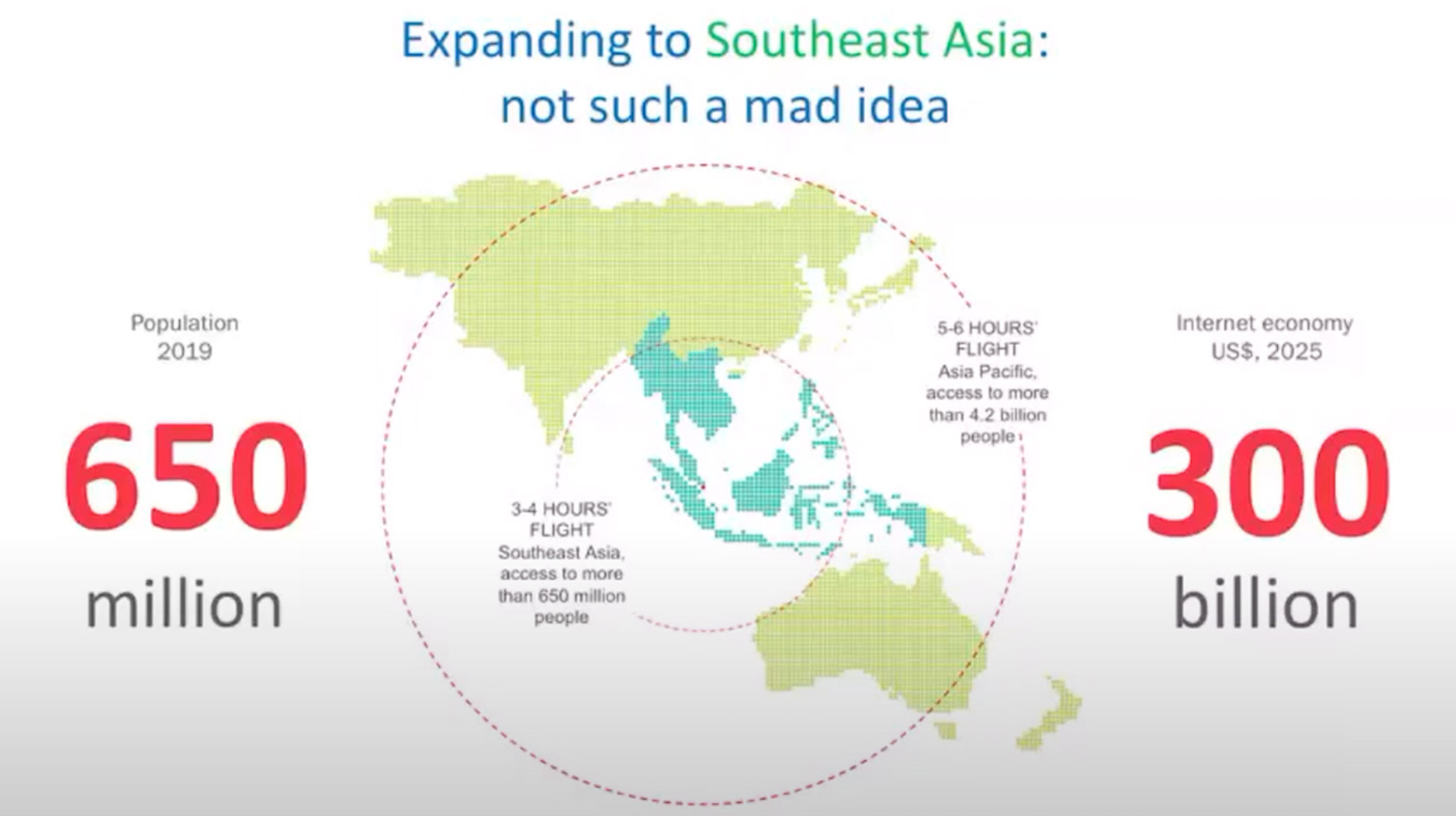In a pandemic, why would any business leader spend money to expand abroad?
Just ask Zoom, which expanded its footprint in Singapore by opening a new R&D centre in December 2020, or Evidation, a healthcare data analytics startup which pioneered a personalised health pilot in Singapore over the course of 2020.
These companies are part of a growing wave moving to capture the abundant opportunities in Southeast Asia. With a projected internet economy of US$300 billion by 2025 and a growing middle class, the region has begun to produce new unicorns such as Grab, Sea Group and Gojek to rival those of Silicon Valley.
In a March 10 panel discussion hosted by B Capital and the Singapore Economic Development Board (EDB), panellists shared their take on why expanding to Singapore and Southeast Asia was a natural choice. Here are the key takeaways.
Embrace the disruption
Instead of fearing disruption, Zoom and Evidation Health embraced disruptive trends as a key part of their strategy. "The pandemic crystallised trends that were already under way, such as remote work, the gig economy and distance learning," said Abe Smith, Head of International at Zoom.
For Evidation Health, the growing adoption of digital health solutions due to the pandemic provided a unique opportunity to drive the future of health. The company drew on real-life data from wearables to create customised healthcare interventions for patients. "In the future, the doctor would call you when something's wrong, and all this will be monitored through your devices," said Christine Lemke, co-founder and co-CEO of Evidation Health.
Companies should think deliberately about how to move fast to capitalize on these disruptive trends. Zoom's first office in Singapore consisted primarily of sales and service support, which eventually expanded to include data centre, R&D and marketing functions. These capabilities allowed the company to scale to a volume of 300 million daily meeting participants. "We had to be thoughtful to build a sustainable company, and speed is a surprising and challenging element to manage," said Abe. Likewise, this consideration weighed heavily on Evidation Health’s future plans. "I took a note from Abe that we should consider being more aggressive about our home base for international expansion, sooner rather than later," said Christine.
Get close to the customer
For Evidation Health, customers came first in their decision to expand to Singapore. The company benefited from a digitally savvy population when it launched a novel Singapore-based personalised health pilot known as Lumihealth in partnership with Apple and the Singapore Government in October 2020. Singapore’s Smart Nation project has made technology a way of life for many residents, and they were quick to adopt Lumihealth as a way to enjoy customised health reminders and fitness tips.
Abe echoed the importance of being close to the customer base. "Service delivery is key for Zoom. We needed to be in the right timezone and language, and an in-market presence allowed us to get intimate with our customers," he said. Zoom's presence in Singapore allowed the company to be in close proximity to their regional markets, and customise go-to-market strategies for each of them.








